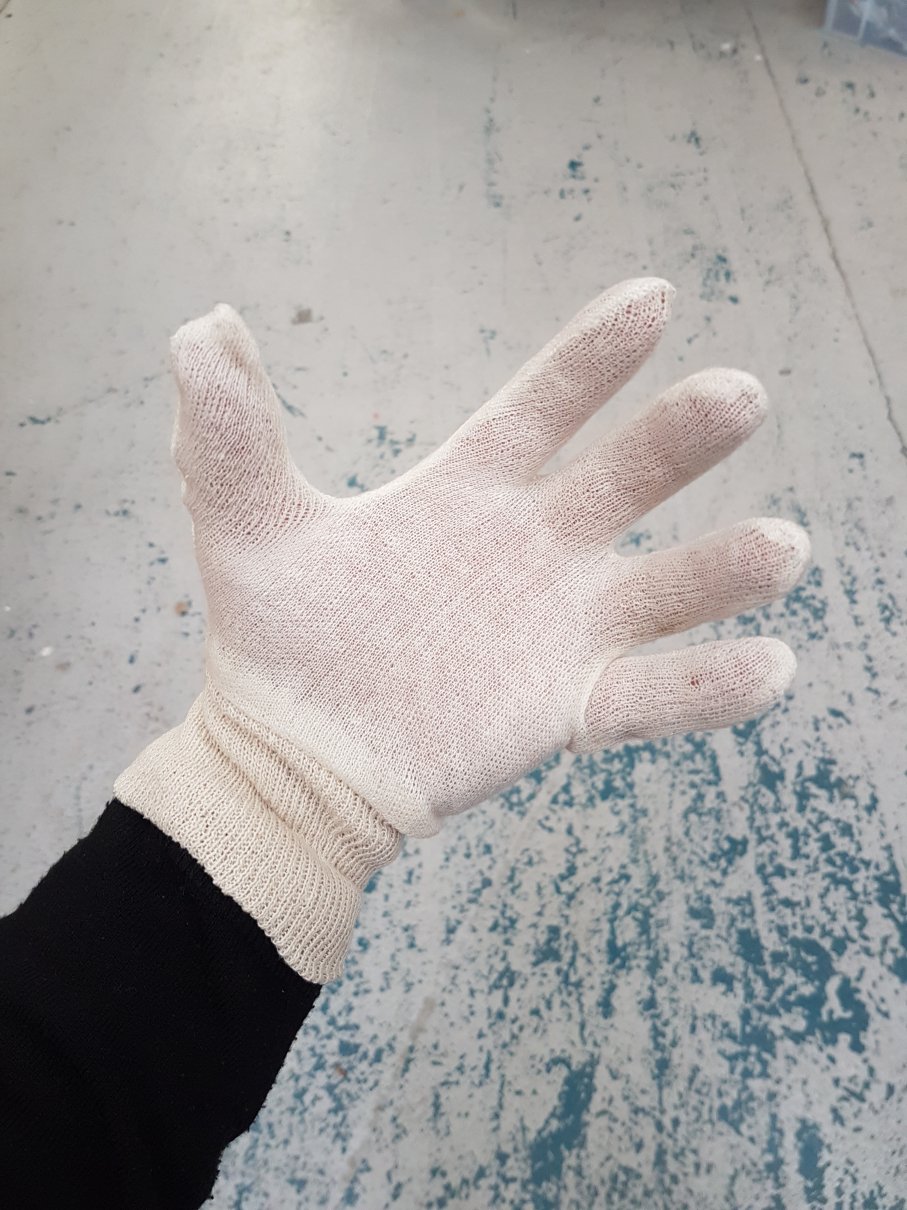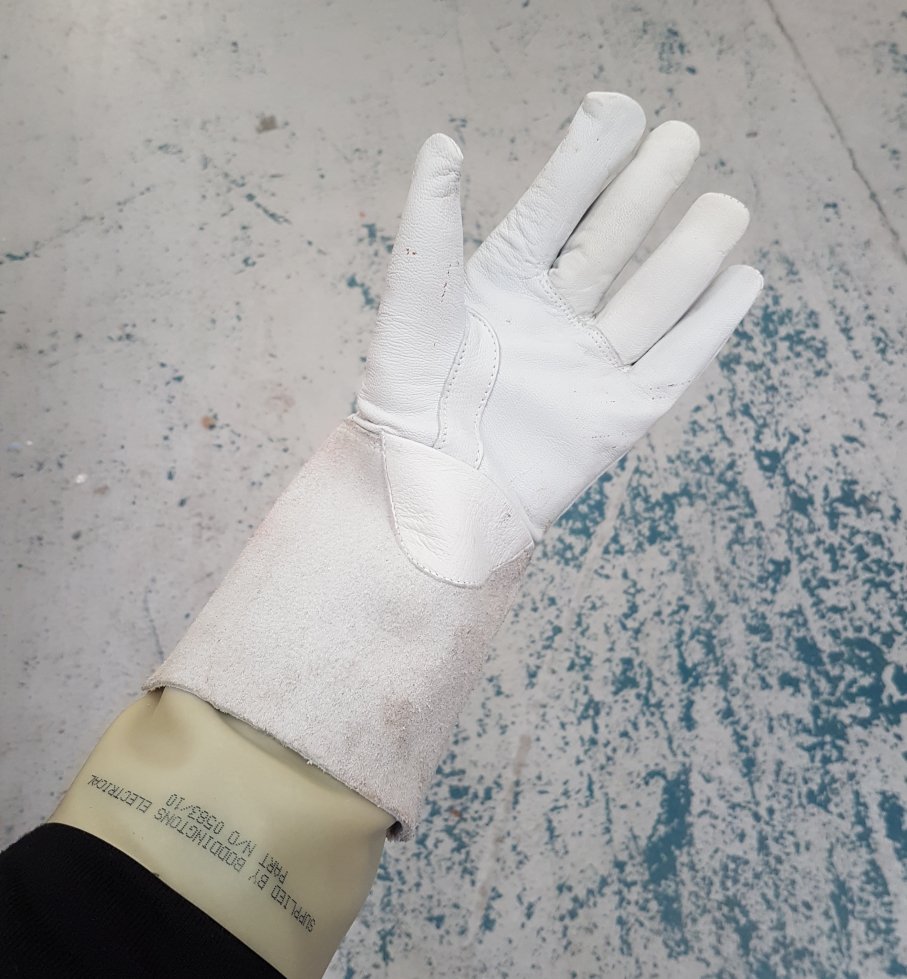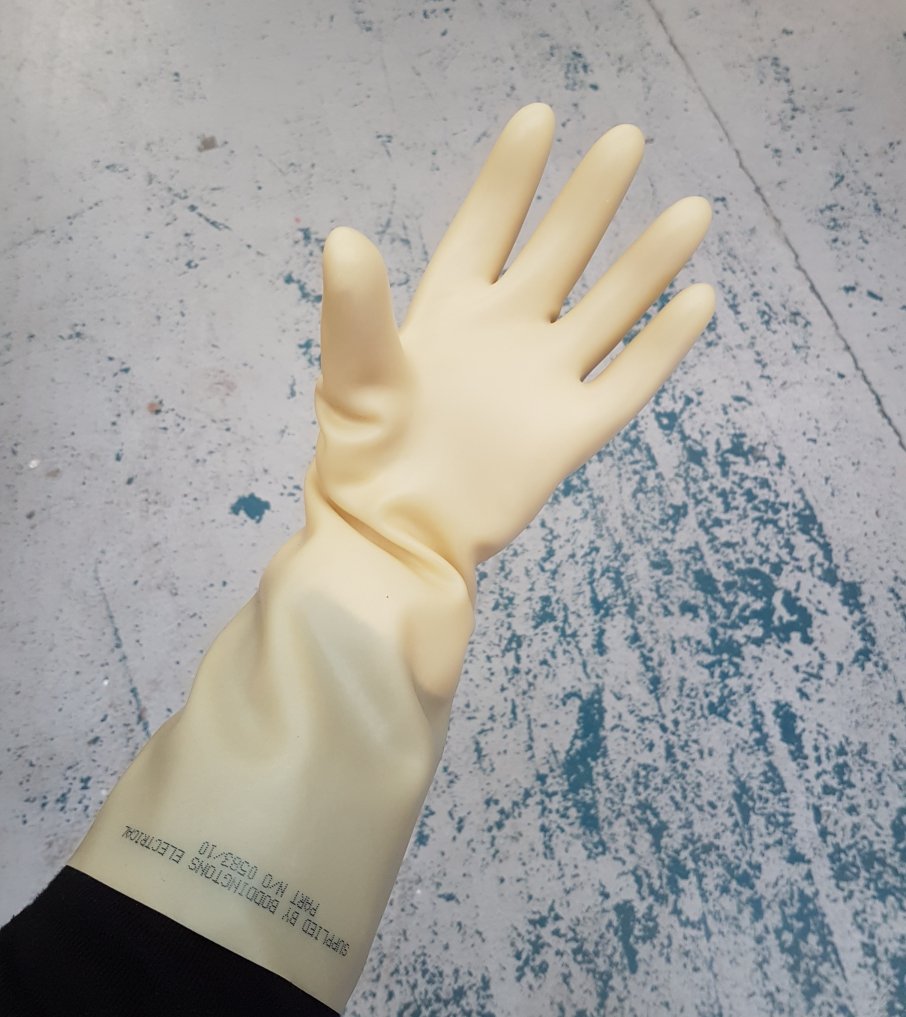It seems crazy to suggest to a vehicle repair technician that he or she needs to wear three pairs of gloves at the same time. But if the vehicle you are working on is an electric hybrid vehicle and there’s a risk of electric shock, you’ll soon discover that three pairs are essential.
Rubber Insulated Gloves
The most important pair are the rubber insulated gloves. These will either be Class 0 or Class 00.
The difference is that Class 0 Gloves are tested to 5000v with an advisory safe working voltage of 1000v. The Class 00 are suitable for working voltages of 500v. Both are manufactured to EN60903.
It’s the insulated rubber glove that gives the protection against electric shock. And, therefore, generally regarded as the most important.
 Cotton Under-Glove
Cotton Under-Glove
The next glove to consider is the cotton under-glove.
Anyone who’s worn rubber gloves for an extended period of time will know that your hands can soon get sweaty.
The cotton under glove will absorb most of the moisture. Because these are a low-cost consumable, they tend to get disposed of after each use.
Additionally, a different team member can use their own cotton under-glove. Then, share the rubber insulated gloves worn by another. Therefore not be affected by a rather unpleasant sweaty residue left behind by the other user.
Leather Over-Gloves
Last of all are the leather over-gloves.
These are also a protection garment. But, rather than protecting the user, they’re protecting the rubber glove from the risk of rips and tears.
A rubber glove with a tear will offer no protection against an electric shock.
Before using the insulated glove, they should be tested for rips and tears with a glove inflater. This pumps a small amount of pressure in to the glove to reveal any leaks.
Being fully clad in three pairs of gloves at the same time can make delicate jobs almost impossible. And it’s on that note that we remind users that, like all other forms of PPE, these should be regarded as the last line of defense against the hazard, when no other means of protection or mitigation are possible.
If you’ve followed the manufacturers discharge procedure for the vehicle battery, followed by rigorous testing for dead, it should be possible to carry out the work without the need for any gloves.
You can buy our glove kit today by clicking here
For further advice, get in touch today.
